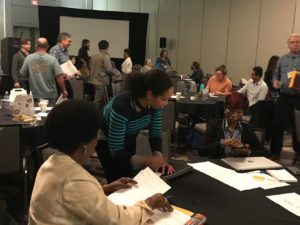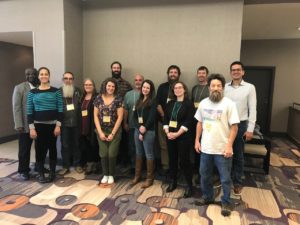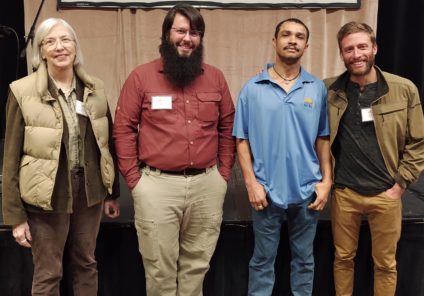Program Coordinator
Program Coordinator
Organic Farming Research Foundation
ORGANIZATIONAL BACKGROUND
The mission of the Organic Farming Research Foundation (OFRF) is to foster the improvement
and widespread adoption of organic farming systems. OFRF envisions a future where organic
farming is the leading form of agriculture. Since our founding in 1990, OFRF has sponsored
organic farming research, education, and outreach to support organic and transitioning farmers
across North America. This work is complemented by efforts to share our findings with policy
makers, agricultural institutions, and federal agencies to support broader change and advance the
organic sector.
POSITION OVERVIEW
The OFRF Program Coordinator is a full-time, benefited, non-exempt position based out of our
Santa Cruz, CA office. The Program Coordinator reports to the Education & Research Program
Manager.
ROLES AND RESPONSIBILITIES
- Administer OFRF’s research grant making program, including outreach, grant
application processing, and facilitating and compiling the Board’s review and
scoring of proposals. - Assess and track the impact of OFRF research projects by maintaining and strengthening
relationships with OFRF-funded researchers, past and present. Maintain a searchable
tracking system of past and present OFRF-funded projects in our online database. - Support implementation of a variety of research and educational projects, such as
building collaborations and engagement with external partners, assisting with
curriculum development, doing online research, organizing datasets, scheduling
meetings and conference calls, etc. - Perform outreach to disseminate the results of OFRF-funded research and increase
awareness of best organic practices, including writing blogs and creating
promotional materials. - Create communication and outreach materials to promote the use of our research and
education materials, and increase attendance at OFRF events. - Organize and coordinate research and education events, such as our annual research
forum, including managing calls for abstracts, coordinating scholarship awards, and
organizing materials and event logistics. - Represent OFRF at conferences and events, and support stakeholder outreach.
- Other tasks, as assigned by your supervisor.
DESIRED SKILLS
- Bachelor’s degree or higher in a related field
- A minimum of two years of experience working in agriculture, community education and
outreach, or a related field - Excellent organizational skills and the ability to adhere to strict deadlines
- Proficiency with Mac and PC and common software applications and
communication programs/platforms - Excellent verbal and written communication skills (including visual
presentations) - Excellent attention to detail and critical thinking skills
- Ability to handle and track multiple fast-paced projects at a time
- Ability to work and communicate professionally with a diverse group of
individuals under strict timelines to accomplish goals - Ability to work independently and as part of a team
- Knowledge of organic agriculture principles and practices is a plus
COMPENSATION AND BENEFITS
OFRF offers a full range of benefits, and a great work environment. We look for co-workers
who can have fun while working as hard as we do for a cause we love. Compensation fort the
Program Coordinator position starts at $21-24 per hour, depending on experience.
TO APPLY
Submit your complete packet with “Program Coordinator” in subject line via email to: jobs@ofrf.org
All qualified applicants should submit:
- A cover letter stating your interest and qualifications.
- A resume outlining your skills and experience.
Please visit www.ofrf.org to learn more about the Organic Farming Research Foundation.
Organic Farming Research Foundation is an Equal Opportunity Employer.



 January 31, 2020 – Holding this year’s Organic Agriculture Research Forum in Little Rock provided an opportunity for researchers and farmers to focus on challenges associated with organic farming in the Southern region. The forum was presented jointly by OFRF and
January 31, 2020 – Holding this year’s Organic Agriculture Research Forum in Little Rock provided an opportunity for researchers and farmers to focus on challenges associated with organic farming in the Southern region. The forum was presented jointly by OFRF and  After the presentations, attendees broke into groups to identify and prioritize the research, education, and policies needed to address challenges in organic farming systems, particularly in the face of a changing climate. Topics included seed and plant breeding, soil health, and weed and pest issues, among others. Each group then shared their priorities.
After the presentations, attendees broke into groups to identify and prioritize the research, education, and policies needed to address challenges in organic farming systems, particularly in the face of a changing climate. Topics included seed and plant breeding, soil health, and weed and pest issues, among others. Each group then shared their priorities.
